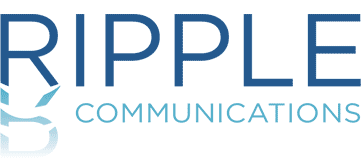
Constant communication is at the core of who we are as beings. Every one of the hundreds of decisions we make (and don’t make) each day communicate about us to others. At the same time, as we navigate our daily lives, we also must constantly process the communications of others. Interpreting, reacting, judging, processing all of the communication we are receiving. Some communications are super transactional and obvious – my Uber driver greeting me and confirming our destination (she’s checking her information and demonstrating good customer service). Others are subtle and require quick interpretation – my husband coming home from work and immediately retreating to our basement to play his guitar (he’s telling me he needs some down time to unwind from his day). In each case I have to make a decision about how to communicate back. We likely don’t even think about these things consciously. But how we respond to even these small seemingly insignificant verbal or nonverbal moments communicates volumes. Do I just grunt “uh-huh” back to the Uber driver? Or do I look up from my phone, make eye contact, confirm the destination and say “thank you?” Those are really different responses to, what in the course of an average day, seems like an insignificant exchange.
Except it’s not…
Over time, these thousands and thousands of communications roll up to create our personal “brand” – who we are and how others see us. But we don’t just communicate as individuals. We communicate as a society, as a culture. This establishes our “way” of doing things or talking about things. This is really obvious when we visit various parts of the world. It’s not just different languages – but literally how different cultures express what they value and what cultural expectations they have. For example, different cultures have widely varying expectations about being on time – some are strict adherents to time commitments while others are quite relaxed and flexible about appointments. How do you know, then, how to behave?
Merriam-Webster defines “communication (noun)” as: “a process by which information is exchanged between individuals through a common system of symbols, signs, or behavior.”
Let’s think about this. A process by which information is exchanged through a common system of symbols, signs or behavior. Hmmmm.
We’ve all had that weird experience when our attempt to communicate utterly fails. When we’ve tried to convey a thought, impart information or influence someone’s thinking and it all went completely haywire. It seems like this experience is happening culturally to us a lot more often. Like not knowing when to be strictly on time or fashionably late. While this example seems trivial, it really can matter a lot. We don’t seem to know what to expect from one another. And we’re not helping each other out. So we risk being embarrassed or insulting others. It seems as if our common system of symbols, signs or behavior is breaking down.
This breakdown in communication is resulting in a growing lack of TRUST.
I am certainly not the first person to make this point about trust being at the heart of our current national crisis (you can find one here and another here).
But here is what I think no one is saying. Think about the people you really, really trust. That’s probably a fairly short list. Now try to think of someone that you disagree with on something important – but still trust. Essentially, trust is the belief or confidence that someone will do what they ought to or what they say they will. So if you borrow my car, I believe you won’t be negligent with something that is so valuable to me. You won’t get into an accident or get it towed. And even if you do happen to have bad luck and hurt my car, I trust you will do the right thing and pay for the damages.
If I trust you then:
- I have confidence we share the same general values of right and wrong.
- I believe you will not hurt me or my family.
- I believe you will not revel in or exploit my weakness or failures if you discover them.
- I believe you will treat me with dignity and respect (as you might want to be treated).
- If I trust you, I believe you will not try to embarrass me.
Also, if I trust you:
- It doesn’t mean that I think you will always be perfect.
- It doesn’t mean that I am weak or vulnerable.
- It doesn’t mean that I have abandoned my beliefs and/or values.
Trust is a really tricky thing. Because in part it’s based on your perspective of what is “true.” Two people can see the same thing and come away with different conclusions. Sometimes our understanding of what is “true” depends on our perspective. Consider the Kennedy assassination and the different versions of what people believed happened based on where they were physically located that day.
At the risk of being redundant, I referred in an earlier post to one of my favorite quotes by Dr. Martin Luther King Jr.:
“…I am convinced that men hate each other because they fear each other. They fear each other because they don’t know each other and they don’t know each other because they don’t communicate with each other, and they don’t communicate with each other because they are separated from each other”
We are separated from each other. We don’t know each other. We fear each other. We are not communicating with each other. We don’t understand each other’s differing experiences and perspectives. The result is, we don’t trust each other.
When I’m communicating with someone I want to trust me, I approach that interaction differently than if “trust” is not a foundational goal. Question is, do we want to trust each other? Do we want to understand perspectives that are different from our own that may lead to different interpretations of the facts? This is a GREAT question for our political leaders – on both sides of the isle. And one will explore more in the future. Unfortunately, our current media environment works against attempts to build trust at every turn and on every platform. We’ll take a look at the media’s role in all of this next.
